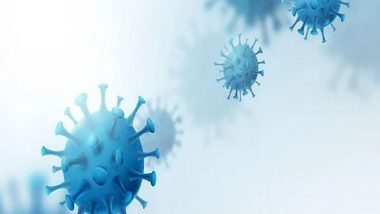The Omicron variant of COVID-19 has been deemed as 'Variant of Concern' by the World Health Organisation (WHO). The virus variant, first detected in South Africa, has been rapidly spreading across the world. Many studies suggest Omicron carries a reduced risk of being admitted to the hospital. In December, two studies based on real-world COVID-19 UK data reported that the Omicron variant is less severe than the Delta variant, with fewer infected people requiring hospitalisation. Here are the FAQs answered about the new COVID-19 variant. Omicron FAQs: Why Is It a Variant of Concern? Know Everything About the New Variant of SARS-CoV-2
Does the COVID-19 Omicron variant spreads faster?
According to the World Health Organisation (WHO), the Omicron variant is spreading faster than the Delta variant. Dr Poonam Khetrapal Singh, the regional director of WHO South-East Asia region had said “Based on the currently limited evidence, Omicron appears to be spreading faster, at a rate not seen with any other previous variant. Emerging data from South Africa suggest an increased risk of re-infection with Omicron, but more data are needed to draw firmer conclusions.”
What are symptoms of Omicron variant of COVID-19?
Cough, fatigue or tiredness, congestion and runny nose are some of the most common symptoms of the Omicron variant according to CDC analysis of the first 43 cases that were investigated in the US.
Can Omicron COVID-19 cases be mild?
Janet Diaz, who is a lead on clinical management at WHO, said that early studies show a reduced risk of hospitalisation compared to Delta.
WHO officials on Thursday said that though the Omicron variant appears to produce less severe disease compared to Delta, but it can not be categorised as ‘mild’.
Is Omicron more severe than the Delta variant of COVID-19?
While the Omicron variant of COVID-19 does appear to be less severe compared to Delta, especially in those vaccinated, it does not mean it should be categorised as 'mild,' the World Health Organization's director-general, Tedros Adhanom Ghebreyesus said on Thursday. "Just like previous variants, omicron is hospitalizing people and it is killing people," he added. What is ‘Delmicron’ And How Is It Different From Omicron COVID-19 Variant? Know The Details
Why do some people get fever after taking COVID-19 vaccine?
Experts say that when the human body gets exposed to an antigen for the first time, it takes time for the immune system to respond and produce antibodies specific to that antigen. Meanwhile, the person is susceptible to becoming ill. Blood flow in the body is increased to increase the circulation of the defensive immune cells in the body. This can lead to an increase in body temperature, which can consequently show up as fever.
With the Omicron variant spreading like a wildfire, a surge in COVID-19 cases across many countries is expected.
(The above story first appeared on LatestLY on Jan 07, 2022 12:34 PM IST. For more news and updates on politics, world, sports, entertainment and lifestyle, log on to our website latestly.com).













 Quickly
Quickly




















